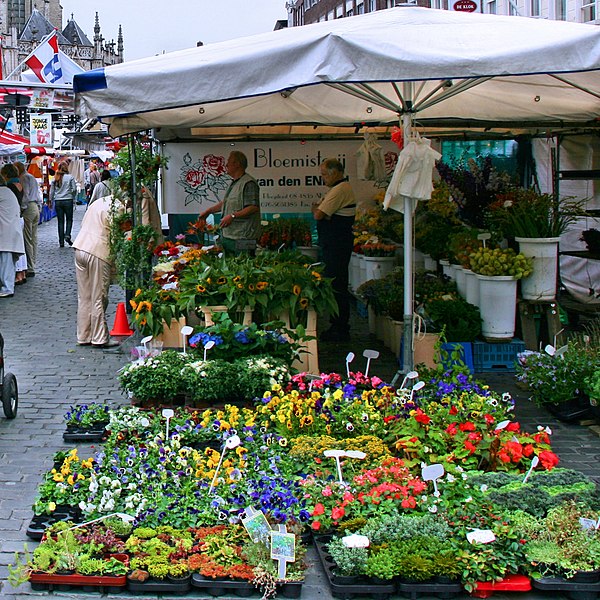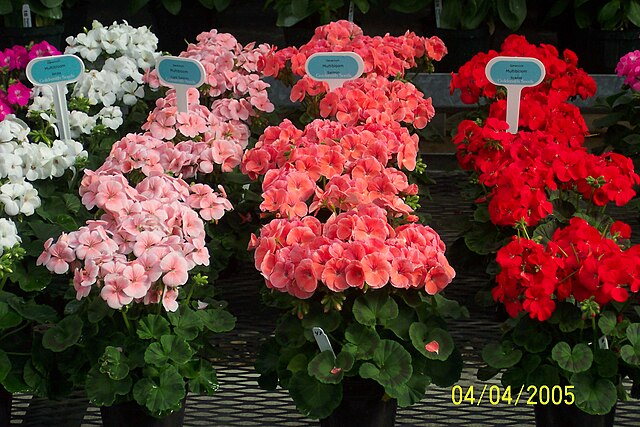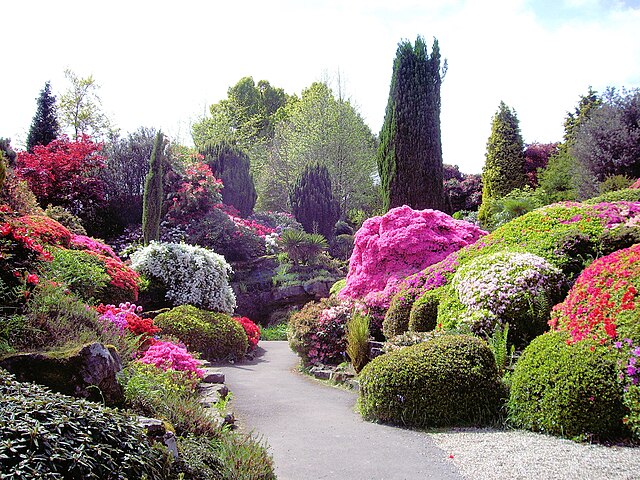Floriculture is the study of the efficient production of the plants that produce showy, colorful flowers and foliage for human enjoyment and the human environment. It is a commercially successful branch of horticulture and agriculture found throughout the world. Efficient production practices have been developed over the years, for the hundreds of plant taxa used in the floral industry, increasing the overall knowledge of whole plant biology. Plant breeding and selection have produced tens of thousands of new genotypes for human use. Jasmine, Marigold, Chrysanthemum, Rose, Orchid, Anthurium, etc. are flowers of commercial demand.
A retail greenhouse shows some of the diversity of floricultural plants
Flower seedlings sold at a local market in Breda, Netherlands
Double flowered petunia - Petunia x atkinsiana
Geranium 'Multibloom' - Pelargonium x hortorum
Horticulture is the science, technology, art, and business of cultivating and using plants to improve human life. Horticulturists and Horticultural Scientists create global solutions for safe, sustainable, nutritious food and healthy, restorative, and beautiful environments. This definition is seen in its etymology, which is derived from the Latin words hortus, which means "garden" and cultura which means "to cultivate". There are various divisions of horticulture because plants are grown for a variety of purposes. These divisions include, but are not limited to: gardening, plant production/propagation, arboriculture, landscaping, floriculture and turf maintenance. For each of these, there are various professions, aspects, tools used and associated challenges; Each requiring highly specialized skills and knowledge of the horticulturist.
A horticulture student tending to plants in a garden in Lawrenceville, Georgia, March 2015
The Rock Garden, Leonardslee Gardens
Flower seedlings at a market in Breda, Netherlands






